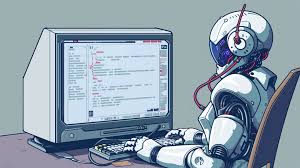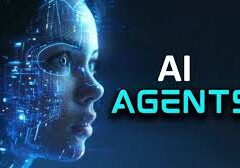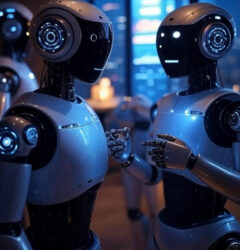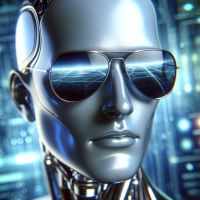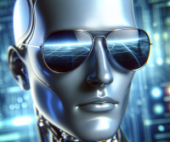The Future of AI Agents: A Symphony of Digital Intelligence
Forget simple chatbots—tomorrow’s AI agents will be force multipliers, seamlessly integrating into our workflows, anticipating needs, and orchestrating complex tasks with near-human intuition. Powered by platforms like Agentforce (Salesforce’s AI agent builder), these agents will evolve in five transformative ways:
1. Beyond Text: Multimodal AI That Sees, Hears, and Understands
Today’s AI agents mostly process text, but the future belongs to multimodal AI—agents that interpret images, audio, and video, unlocking richer, real-world applications.
- Field Service: A technician records a sputtering engine; the AI diagnoses the issue instantly.
- Marketing: Agents detect viral trends (like an ‘80s leg warmer revival) by analyzing social media videos.
- Customer Service: AI detects frustration in a caller’s tone, flagging sentiment before complaints escalate.
How? Neural networks convert voice, images, and video into tokens that LLMs understand. Salesforce AI Research’s xGen-MM-Vid is already pioneering video comprehension.
Soon, agents will respond to spoken commands, like:
“Analyze Q2 sales KPIs—revenue growth, churn, CAC—summarize key insights, and recommend two fixes.”
This isn’t just about speed; it’s about uncovering hidden patterns in data that humans might miss.
2. Agent-to-Agent (A2A) Collaboration: The Rise of AI Teams
Today’s AI agents work solo. Tomorrow, specialized agents will collaborate like a well-oiled team, multiplying efficiency.
- Ecommerce: One agent handles customer queries, another adjusts pricing, and a third manages inventory—all synced in real time.
- Supply Chains: AI agents from different companies coordinate logistics, adapting to delays instantly, creating a self-regulating network.
Human oversight remains critical—not for micromanagement, but for ethics, strategy, and alignment with human goals.
3. Orchestrator Agents: The AI “Managers” of Tomorrow
Teams need leaders—enter orchestrator agents, which coordinate specialized AIs like a restaurant GM oversees staff.
Example: A customer service request triggers:
- A service agent handles the inquiry.
- An inventory agent checks stock.
- A logistics agent calculates shipping.
- A billing agent processes payment.
The orchestrator integrates all inputs into a seamless, on-brand response.
Why it matters: Orchestrators make AI systems scalable and adaptable. New tools? Just plug them in—no rebuilds required.
4. Smarter Reasoning: AI That Thinks Like You
Today’s AI follows basic commands. Tomorrow’s will analyze, infer, and strategize like a human colleague.
Example: A marketing AI could:
- Segment audiences using abductive reasoning (educated guesses).
- Personalize campaigns by channel.
- Reallocate budgets in real time.
- Report insights for future projects.
Key Advances:
- ReAct Prompting: AI loops through reason → act → observe until the goal is met.
- Topic Classification: Maps requests to business policies for precise solutions.
- Contextual Conversations: AI remembers follow-ups, like a human would.
As Anthropic’s Jared Kaplan notes, future agents will know when deep reasoning is needed—and when it’s overkill.
5. Infinite Memory: AI That Never Forgets
Current AI has the memory of a goldfish—each interaction starts from scratch. Future agents will retain context across sessions, like a human recalling notes.
Impact:
- Personalization: Remembers user preferences, habits, and past requests.
- Efficiency: No more repeating instructions.
- Proactivity: Anticipates needs based on historical patterns.
The Bottom Line
The next generation of AI agents won’t just assist—they’ll augment human potential, turning complex workflows into effortless collaborations. With multimodal perception, team intelligence, advanced reasoning, and infinite memory, they’ll redefine productivity across industries.
The future isn’t just AI—it’s AI working for you, with you, and ahead of you.


